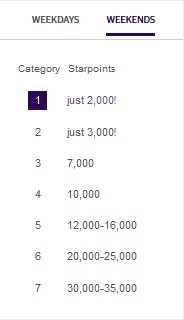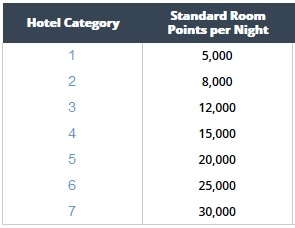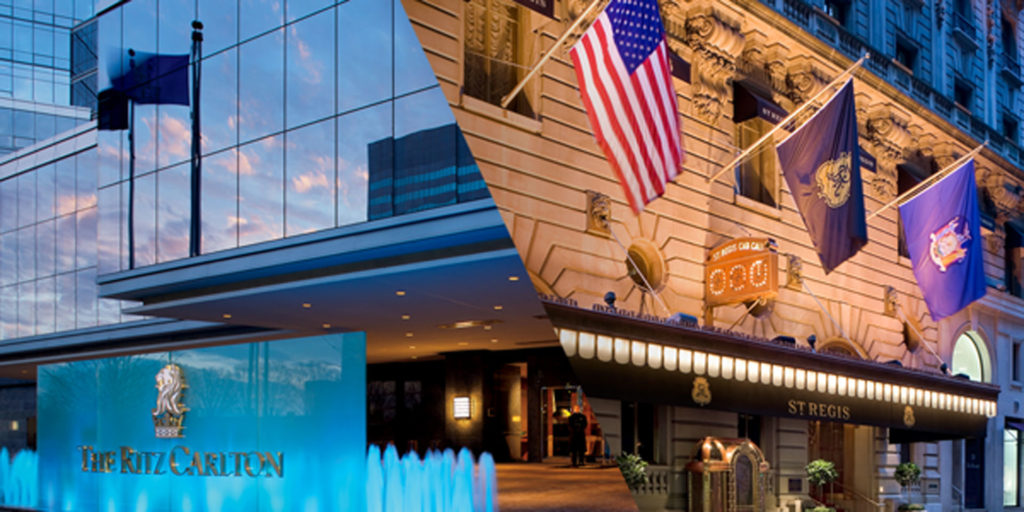
Readers of this blog know my affinity for hotels, which would not be possible without robust rewards programs. My passion for Starwood and their loyalty program, Starwood Preferred Guest, comes from a careful analysis and understanding of the various hotel rewards programs, and the advantages built into the program. With the billions of dollars changing hands and the recent Marriott acquisition of Starwood, I am sure many Starwood members, like myself, are concerned with the future of the program.
What is a typical hotel loyalty program, and why is Starwood the best?
There are several main categories of how to break down loyalty programs. I will go through each and detail my experience with Starwood, and compare it to my experience with other hotel loyalty programs. Your experience may be different.
- Point generation
- Point redemption
- Loyalty program status and benefits
- Loyalty program partnerships
Point Generation
First and foremost, each hotel chain rewards guests with points, which can then be exchanged for free hotel nights and other items (See: point redemption). Thus, it makes sense that the ability to generate points is one of the two key parts of any good loyalty program. In a separate post, I detail how to expand horizons and possible point generating options, beyond the standard points gained through stays.
Starwood’s typical 2x to 4x points per dollar may not compare well with IHG, Hilton, Hyatt, or other program’s reward, anywhere from 3x to 10x per dollar spent. However, this is misleading due to reasons explained in the next section, point redemption. Starwood’s vast array of earnings options, from Crossover Rewards with Delta, using Uber, eating at Starwood restaurants, using Starwood credit cards, making a Green Choice™ to avoid housekeeping, and others make it at least comparable if not better than that of the competition.
Point Redemption


While you can earn more points per dollar with other chains, you must redeem more as well to get the equivalent value, which is where I feel Starwood outshines all others. At Starwood, I feel you win on all fronts – low, mid, and high-tier hotels. Starwood hotels range from Category 1 to 7, where Category 1 consists of four three random airport hotels for as low as 2,000 points per night, all the way up to Category 7 for luxury resorts (such as the St. Regis New York, where I want to stay soon) for 30,000 per night or more during the high season.
Typically I am searching for the mid-tier Category 3-5 range, which is between 7,000 and 12,000 or 16,000 points per night depending on the season. When I book for five nights and using Starwood’s promotion (book four nights with points get the fifth free) I would spend between 7,000 and 12,800 points per night, typically garnering anywhere from a 2 to 5 cents per point (cpp) valuation.
Cents Per Point as Medium of Exchange
This number is especially important to me and the basis of all comparisons on point values. You can also redeem your points by converting them to airline miles, or spend them on SPG Moments, where you can bid on unique experiences such as a dinner with a special chef, or a suite at a concert or baseball game.

The only other program I feel is even close would be Hyatt, and only on their high-end and only when spending on the nicest hotels (where the top-of-the-line Park Hyatts will cost up to $1200 a night, redeemable for 30,000 Hyatt Gold Passport points). However, for mid-tier hotels and the ones I book the most frequently, I’ve found that Starwood is simply the best in terms of cpp and value.
A pro tip – Starwood has no blackout dates on their reward nights (unlike many of the others). If you see a cash rate but not a free night available via points, you can always call their helpful reservations department to book. I’ve had to do this a couple of times, and it went very smoothly.

Loyalty Program Status and Benefits
If you stay a certain amount of times or for a certain amount of nights with hotels, they award you tier levels which correspond to different amount of benefits, which may include items such as free internet, room or suite upgrades, free drinks, late checkout, free breakfast, and others.
While other programs’ statuses can be obtained with cards (Hyatt, IHG, Hilton, etc.) Starwood does not award it for their SPG Amex cards (they do award SPG Gold for premium Amex cards). However, one key point of Starwood is that their Free Night Awards and nights/stays redeemed via points, does count towards the requisite number of nights and stays for Status. Thus, for those members who generate points easily, Starwood is your best bet for status.
If you pay for your rates, other programs would reward you for that accordingly, but for me the goal is to generate points to avoid paying cash rates – and thus Starwood works well.

Starwood benefits and tiers are comparable to others:
- SPG Gold after 10 stays / 25 nights – best benefit is free drink or points.
- SPG Platinum after 25 stays / 50 nights – best benefit is either possible suite upgrade or breakfast
Loyalty Program Partnerships
This is the last category of reward programs, which is understand at which companies your hotel loyalty tier will provide additional benefits. For me, Starwood’s partnership with Delta really came in handy, as my Starwood Platinum gave me benefits typically reserved for Delta Medallion members, such as upgraded seats, faster check-in, priority boarding, and a free checked bag.
Conclusion
Ultimately, it makes sense to be loyal to one chain if possible, and spend all of your stays there. Although, typically you would want one with many possible locations and level of hotels, as well as a wide range of redemption possibilities. For me, Starwood has been the best over the past year.
Marriott’s recent acquisition of Starwood and its 1,100+ properties puts into jeopardy the Starwood Preferred Guest program. While Marriott chiefs obviously want to maintain the loyalty of Starwood members, integrating the loyalty programs will a massive and time-consuming endeavor. It remains to be seen how things will shake out.

Featured Image from Starwood Hotel Website.
Do you agree with my analysis? Disagree? Think about it differently? Know a good joke? Let me know in the comments, or reach me directly at TheHotelion@gmail.com! Like my posts? See more here, on TravelUpdate! Follow me on Facebook (The Hotelion) or on Twitter and Instagram: @TheHotelion













Hi, you have a good point on linking what points you get with how many you need. I recently posted a study of Singapore Airlines vs Qatar Airways where I needed to spend U$8k on Singapore vs U$9k on Qatar to get a free biz class Sing-London return ticket using points. At first it seemed Qatar was better as I got more points. But to redeem Qatar needed more points. So overall I had to spend less on Sing Air.
Yes – have to check both the earning and redemption portals. So with Starwood I earn less, but I also redeem less, and so when you earn in fixed amounts (such as 500/per night of housekeeping) it’s worth more than the equivalent number of points. Especially with churning – earning 1 SPG point per dollar usually beats the rest of the cards and their earnings.
Also, while SPG stays don’t earn as many points (2-4x/$1 depending on your status), the top award redemption cost is 30-35K per night for many St Regis, Luxury Collection, and W hotels and resorts…and rarely up to 60K for all Suote hotels/resorts.. Hilton may earn up to 10x points), their top award redemptions (Waldorf Astoria) is 50-80K…and their top awards for Conrad still are 50K. Marriott also has top award redemptions of up to 70K for Ritz Carlton and up to 45K for their 4-5 star JW Marriott and Autograph hotels. IHG is similar…but with very few top end InterContinental hotels up the top standard of the aforementioned chains.
Then when you consider the number of outstanding 4 star hotels and even bigger range of 5 star hotels that SPG offers, many of which are among the very best in their city or area, it is obvious why SPG is the best across the board for those interested in upper upscale and luxury hotels.
Exactly – as I mentioned SPG only goes up to ~30-35K, but you’re right I should have clarified that others go significantly higher. It’s a combination of more valuable points because both the low, middle, and higher range hotels cost correspondingly an order of magnitude less. Absolutely correct.